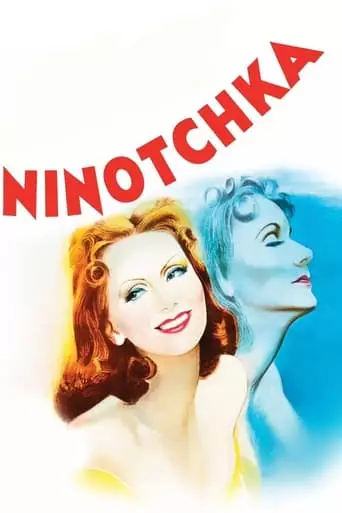
Ninotchka (1939) Watch Online Free
A stern Russian woman sent to Paris on official business finds herself attracted to a man who represents everything she is supposed to detest.
Directed by Ernst Lubitsch, Ninotchka is a romantic comedy that masterfully blends political satire with a love story. The film introduces Nina Ivanovna Ninotchka Yakushova (Greta Garbo), a stern and pragmatic Soviet envoy dispatched to Paris to oversee the sale of jewels confiscated from Russian aristocrats. Her mission is to ensure that her three bumbling comrades—Iranoff, Buljanoff, and Kopalski—complete the sale efficiently. In Paris, Ninotchka encounters Count Leon d’Algout (Melvyn Douglas), a charming bachelor tasked with thwarting the sale to return the jewels to their original owner, the Grand Duchess Swana. Despite their opposing political ideologies, Ninotchka and Leon develop a romantic connection. As Ninotchka experiences the luxuries and freedoms of Western life, her rigid communist principles begin to waver, leading to a personal transformation that challenges her beliefs and aligns her heart with Leon.
Lubitsch’s direction, often referred to as the Lubitsch Touch, is evident in the film’s delicate balance of humor and political commentary. The screenplay, co-written by Billy Wilder, is rich with witty dialogue and situational irony, highlighting the contrasts between Soviet austerity and Western indulgence. Garbo’s performance is particularly noteworthy, as Ninotchka marked her first foray into comedy, showcasing her versatility as an actress.
The film explores several significant themes:
Upon its release, Ninotchka was both a critical and commercial success. It received four Academy Award nominations, including Best Picture and Best Actress for Greta Garbo. The film was notable for its daring political satire during a time when tensions between the Soviet Union and Western countries were escalating. Its portrayal of a Soviet official succumbing to the charms of Western life was both provocative and humorous, contributing to its enduring legacy in cinema. Ninotchka has influenced numerous romantic comedies and remains a testament to Lubitsch’s directorial prowess and Garbo’s acting versatility.
Viewing Ninotchka is likely to leave you with a sense of delight and contemplation. The film’s blend of humor, romance, and political satire provides an entertaining experience that also encourages reflection on the complexities of ideological divides and human connections. Garbo’s captivating performance and the film’s witty dialogue contribute to a satisfying cinematic journey, leaving you with an appreciation for the timeless nature of love and laughter amidst political and cultural differences.
